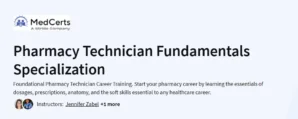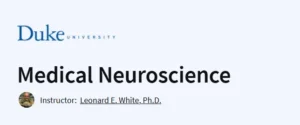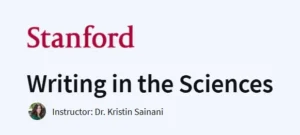What will you learn in Vital Signs: Understanding What the Body Is Telling Us Course
Understand the fundamentals of the body’s vital signs and what they indicate
Identify normal vs. abnormal readings for temperature, heart rate, blood pressure, respiration rate, and pain
Recognize how vital signs relate to health conditions and medical emergencies
Learn how healthcare professionals monitor and interpret signs of patient stability
Gain insight into basic physiology behind each vital function
Program Overview
Module 1: Introduction to Vital Signs
⏳ 1 week
Topics: Overview of vital signs, why they matter, health status indicators
Hands-on: Self-assessment quizzes on baseline knowledge
Module 2: The Cardiovascular System
⏳ 1 week
Topics: Heart rate, blood pressure, blood circulation, pulse points
Hands-on: Practice measuring pulse and understanding BP values
Module 3: The Respiratory System
⏳ 1 week
Topics: Breathing patterns, oxygenation, respiratory rate, abnormalities
Hands-on: Observation-based practice on counting breaths
Module 4: Temperature and Pain
⏳ 1 week
Topics: Body temperature variations, fever, hypothermia, pain as a vital sign
Hands-on: Recording body temp and evaluating pain scales
Get certificate
Job Outlook
Excellent foundational course for aspiring nurses, EMTs, and medical assistants
Strengthens readiness for clinical training or pre-medical studies
Enhances skills for caregivers and health coaches
Growing demand for health workers who can recognize early warning signs
Specification: Vital Signs: Understanding What the Body Is Telling Us
|
FAQs
- No prior medical training is required.
- Concepts are explained in clear, non-technical language.
- Suitable for aspiring healthcare students and caregivers.
- Focus is on understanding, not memorizing jargon.
- Hands-on self-assessment makes it beginner-friendly.
- Yes, it teaches how to recognize normal vs. abnormal signs.
- Helps detect early warning symptoms in loved ones.
- Supports better communication with healthcare providers.
- Covers basics like measuring pulse, respiration, and temperature.
- Useful for elderly care, chronic illness, and home monitoring.
- Includes observation-based practice (pulse, breaths, temp).
- Offers quizzes and case examples for hands-on application.
- Focuses on skill awareness, not professional certification.
- Demonstrates real clinical scenarios for better understanding.
- Serves as preparation for later clinical training.
- Strong foundation for nursing, EMT, and medical assisting.
- Beneficial for pre-medical students exploring healthcare.
- Supports health coaches and wellness professionals.
- Valuable for community health and caregiving roles.
- Enhances readiness for further medical study.
- Refreshes fundamental knowledge of vital signs.
- Reinforces patient observation and early detection skills.
- Useful as continuing education for allied health workers.
- Helps bridge knowledge gaps for those from non-medical fields.
- Adds patient-centered context to technical knowledge.





